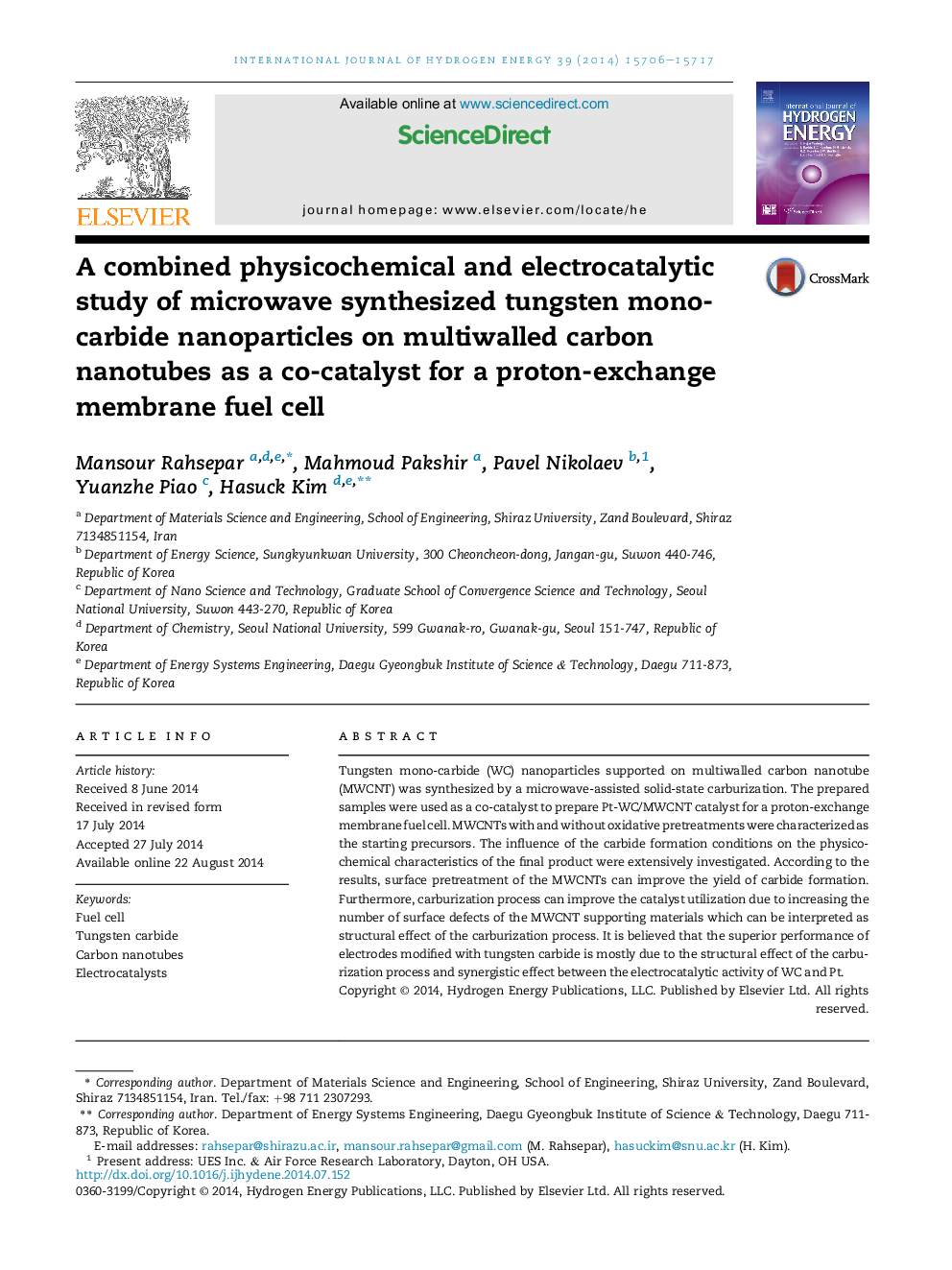| Article ID | Journal | Published Year | Pages | File Type |
|---|---|---|---|---|
| 1272409 | International Journal of Hydrogen Energy | 2014 | 12 Pages |
•Tungsten mono-carbide nanoparticles were synthesized on MWCNTs as co-catalyst.•Carburization process has structural effects on MWCNT supporting materials.•Functional groups and defects located on CNT surface are affected by carburization.•Surface pretreatment of the MWCNT can improve the yield of carbide formation.•Modification of MWCNTs with tungsten carbide enhances the catalyst performance.
Tungsten mono-carbide (WC) nanoparticles supported on multiwalled carbon nanotube (MWCNT) was synthesized by a microwave-assisted solid-state carburization. The prepared samples were used as a co-catalyst to prepare Pt-WC/MWCNT catalyst for a proton-exchange membrane fuel cell. MWCNTs with and without oxidative pretreatments were characterized as the starting precursors. The influence of the carbide formation conditions on the physicochemical characteristics of the final product were extensively investigated. According to the results, surface pretreatment of the MWCNTs can improve the yield of carbide formation. Furthermore, carburization process can improve the catalyst utilization due to increasing the number of surface defects of the MWCNT supporting materials which can be interpreted as structural effect of the carburization process. It is believed that the superior performance of electrodes modified with tungsten carbide is mostly due to the structural effect of the carburization process and synergistic effect between the electrocatalytic activity of WC and Pt.
